
[Part II of II]
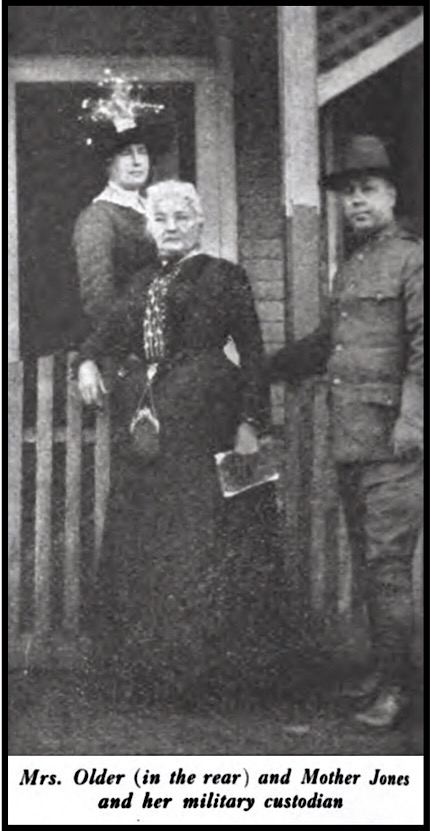
During the recess I had a few minutes’ conversation with Mother Jones. Her eighty years were as nothing—she became a rollicking, irrepressible girl. She liked everyone, even the military court. She told me she was not against the judges, but their jobs. As for the young officer appointed against her wishes her counsel, like an affectionate mother she said, “He’s a nice fellow, only, you know, he’s not my attorney.” She turned to one of the judges who was passing: “Don’t dare find against me. If you do, I’ll——” she shook her fist with a touch revealing coquetry.
When I returned for the evening session, already a crowd had gathered in the street before the court room. Prisoners’ wives with shawls over their heads, leading children, had walked a mile or more. They knew there was no chance to enter the court room, but they stood in the streets, hoping to catch echoes of speeches thru the open windows. One woman flung at a soldier: “Scabs at a dollar and a half a day.” In West Virginia, women fight side by side with men.
Eight or ten sympathizers of the prisoners had already filled the benches in the gas-lit hall. “Everybody’s Dearest Friend” had preceded me. Again he gave me water and a newspaper. The prisoners filed into the room.
“A bad-looking lot of fellows,” he offered.
“Badly dressed,” I answered.
“No, bad men. You ought to know what these miners are. If you had seen and heard what I have.”
A sympathizer with the strikers seated on a bench behind me touched my arm. “Do you know you are talking with Smith, a Burns detective?”
Mr. Smith conferred with the provost marshal, also Associated Press correspondent. Word was sent to the judges’ table. The judge advocate rose and advised all women except me to leave the court room. The women obeyed. A smile played round the lips of Mr. Smith, flirted in the provost marshal’s eyes, and lighted up the table where the judges sat.
The smile died when M. F. Matheny, an attorney for the defendants, rose and said: “These women are friends of the prisoners. They are as much interested in the trial as the men themselves. This man Smith has no right in the court room. He should be excluded if the women are. The court has ruled that no witness after testifying shall remain.”
The court blithely overruled itself and then went on dealing out justice to “criminals.” I was proud to know Mr. Smith. He had invented a new misdemeanor; to mention his name was lèse–Smith. This great court he dominated. William J. Burns was his visible employer. I speculated much about his invisible employer.
I was not to speculate long. An attorney’s speech disclosed that Smith, the gentle overlord of the room, was in the employ of the mine operators. The attorney also revealed that Smith was an excellent detective. He had gone to the strikers, pretended to be in need, had eaten their bread when they had only strike rations. On one occasion his life had been saved by one of the prisoners. The detective had recorded the many violent words uttered and had become chief witness for the state.
While the first speeches were being made, Mr. Smith, the mine operators’ representative, unrebuked by the court, noisily used the telephone. Apparently the judges and Mr. Smith agreed that it was a noble duty to interrupt a dull speech. The prisoners watched Smith with more perturbation than they followed the judges. As the hour grew late, they moistened their lips; their eyes were glassy; even Mother Jones seemed about to faint. Back of Smith was the specter, the guard system, peonage, gatling guns.
Continue reading “Hellraisers Journal: “The Last Day of the Paint Creek Court Martial” by Cora Older, Part II: Wives and Children Stand Outside” →
 —————
—————
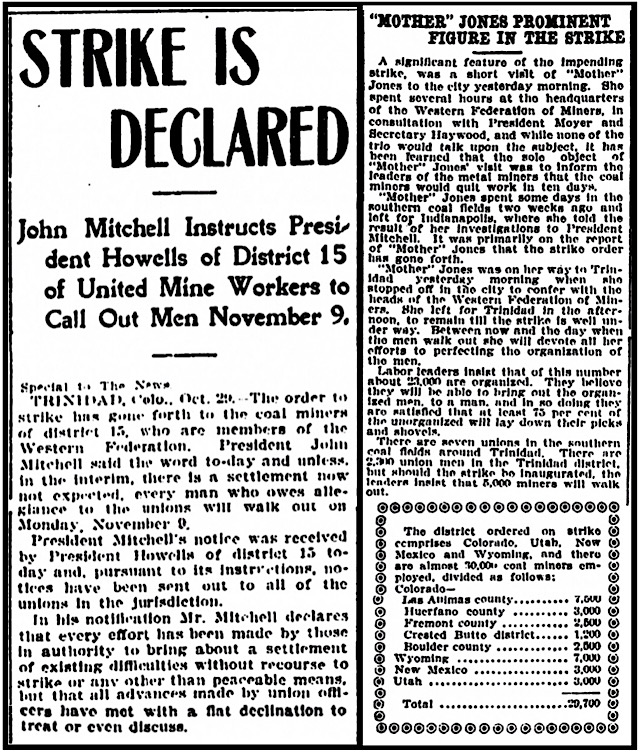
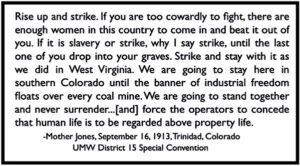 —————
—————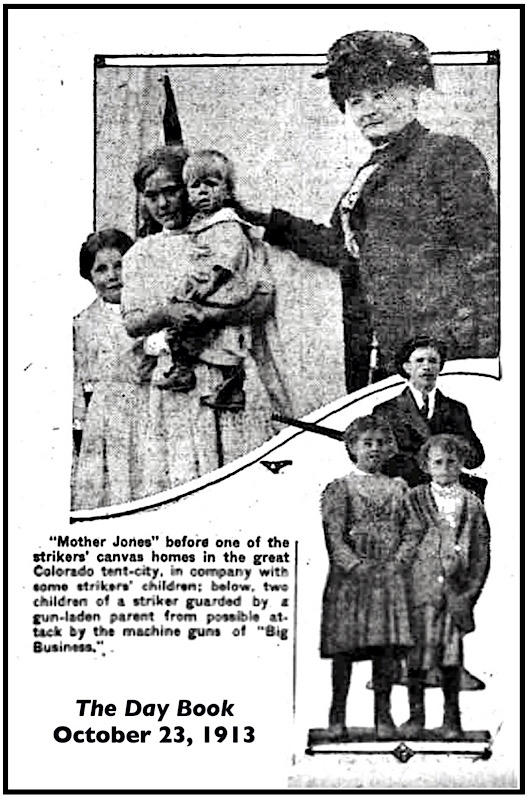
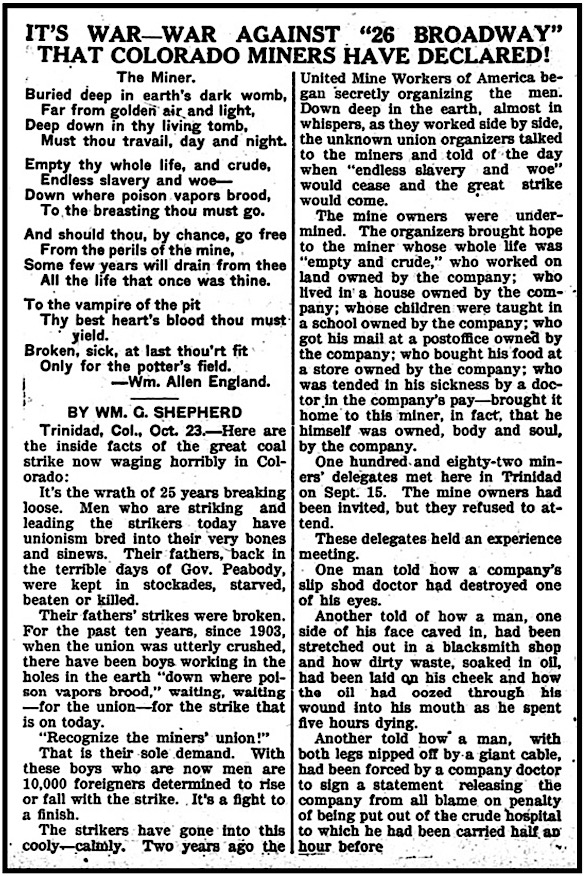
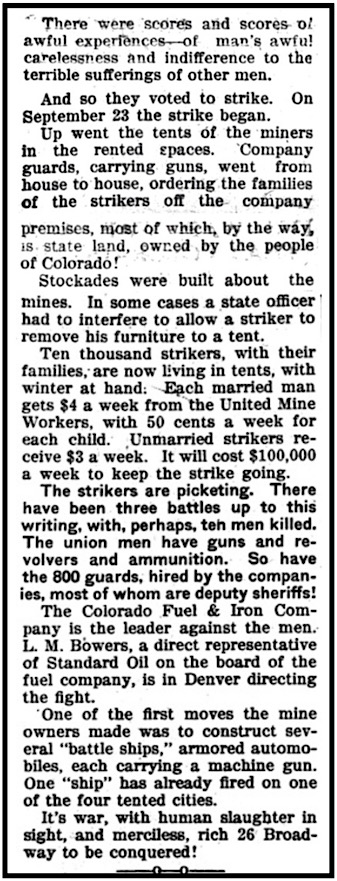
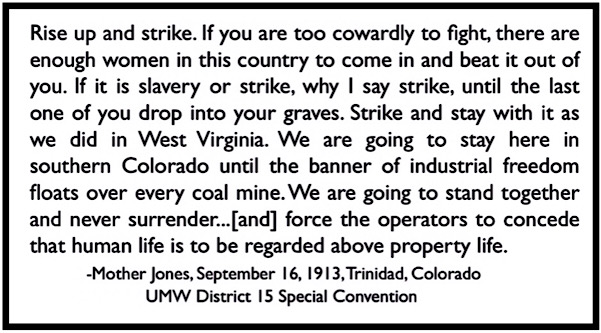 —————
—————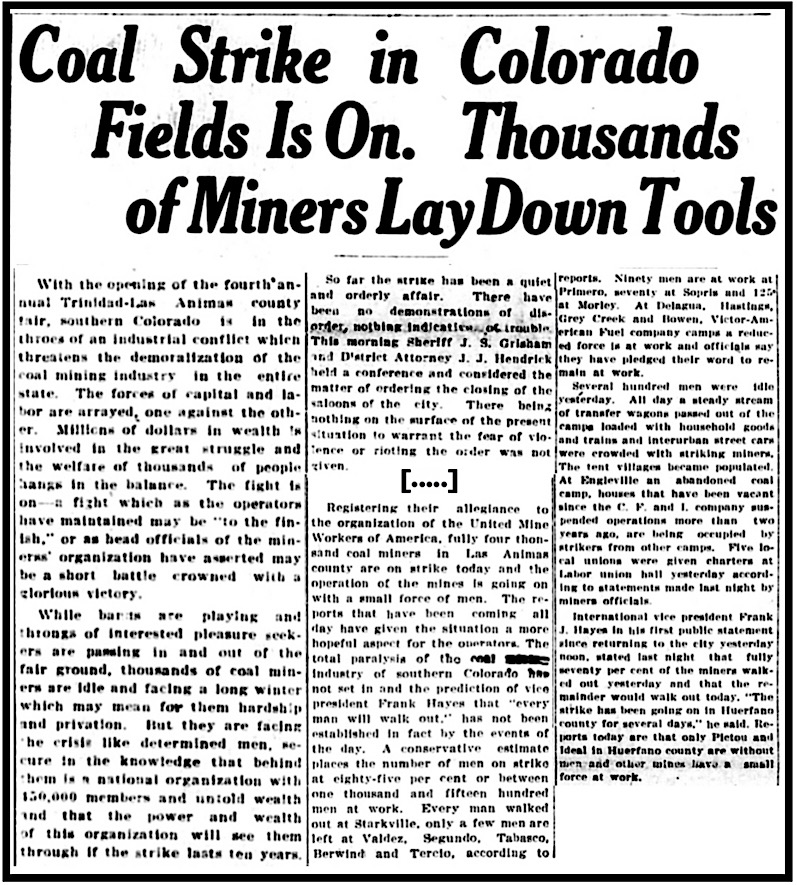
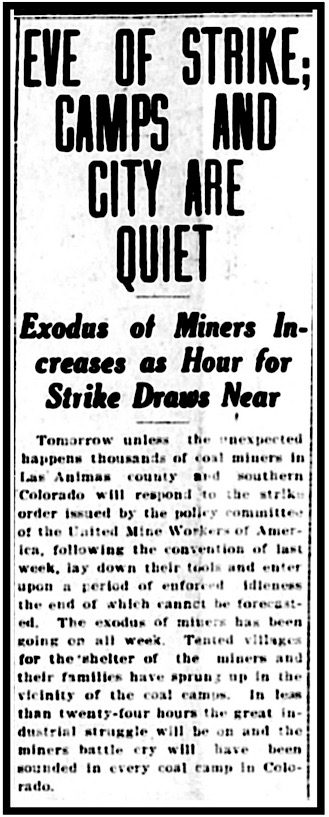
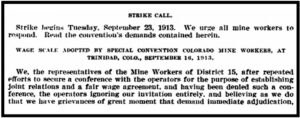 —————
—————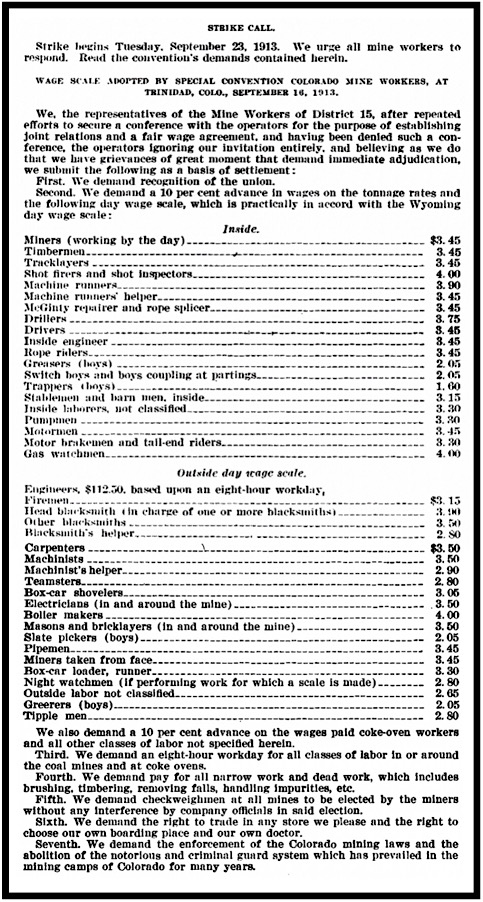
 —————
—————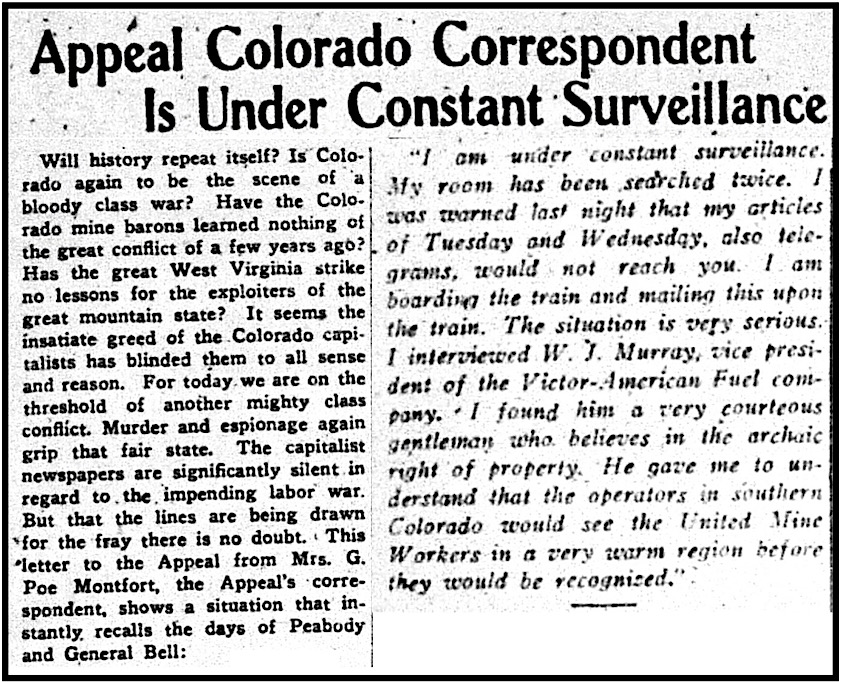
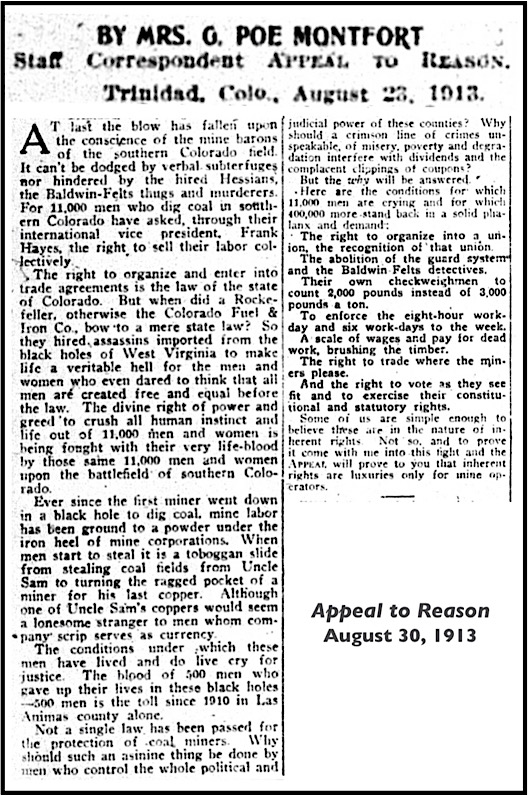
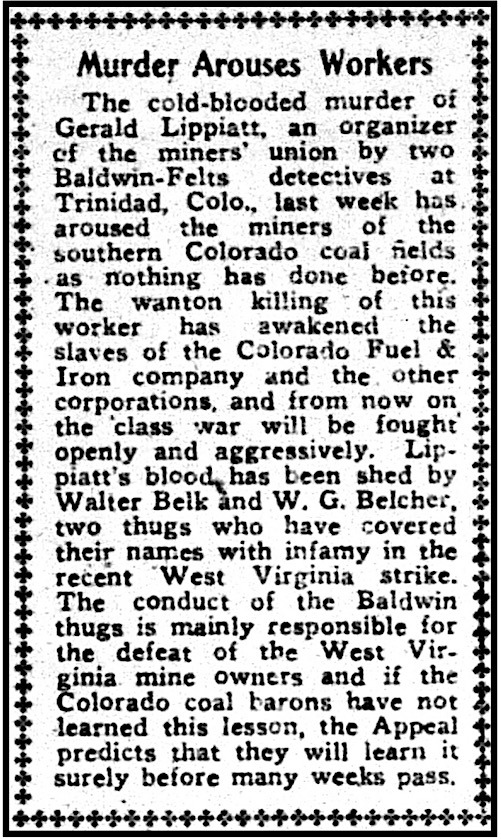
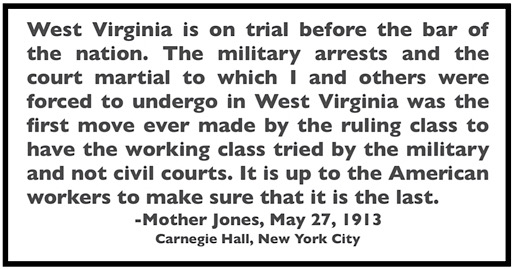 —————
—————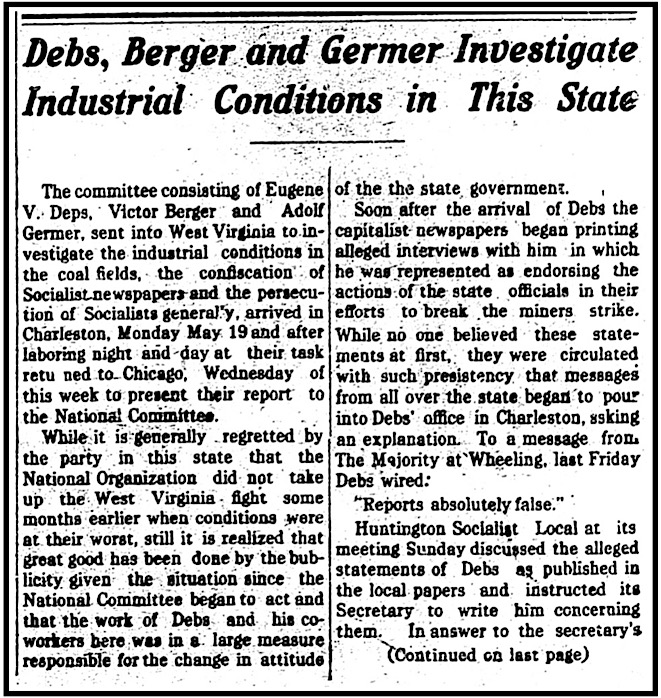
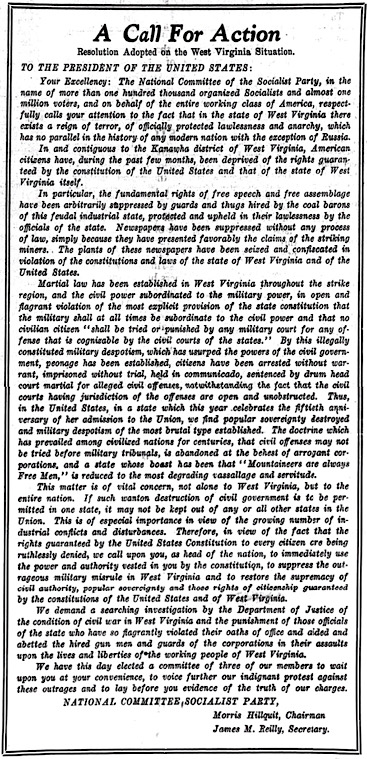
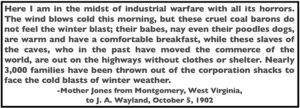 —————
—————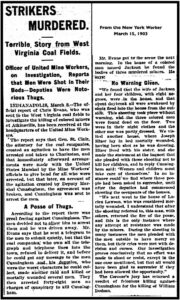
 —————
—————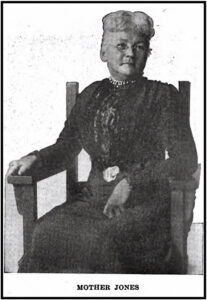
 —————
—————
